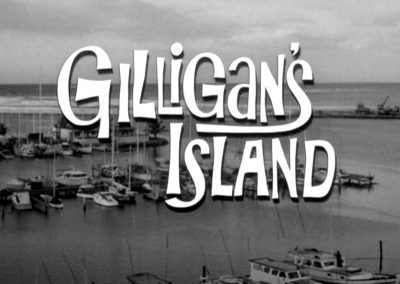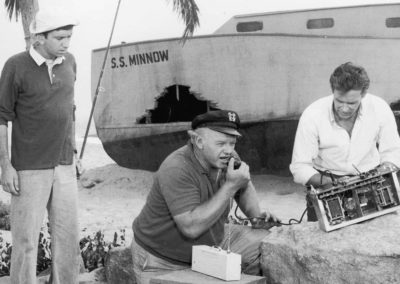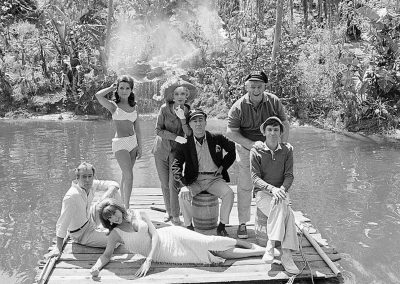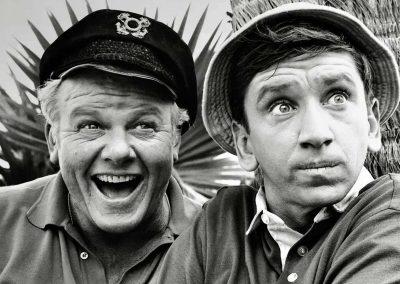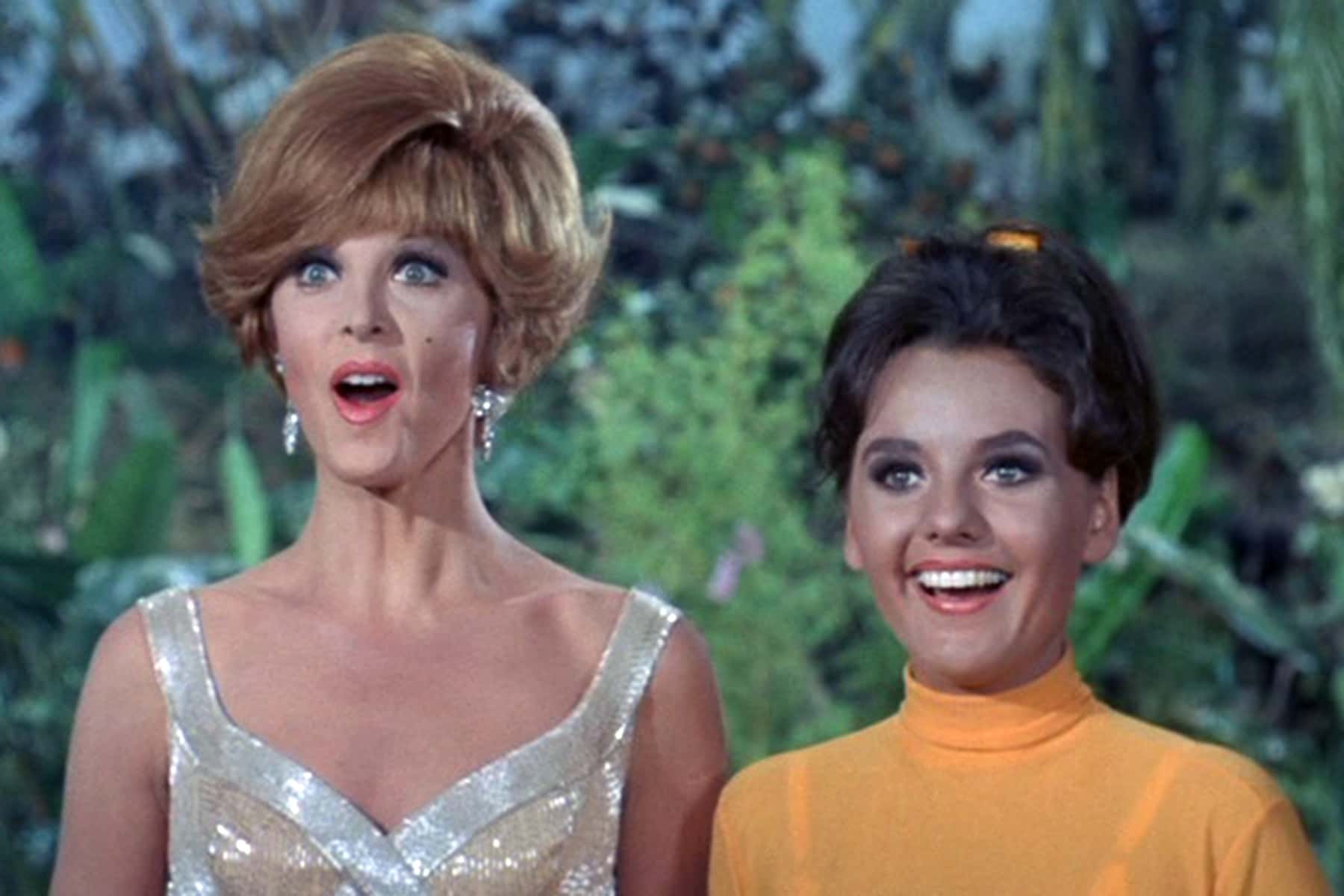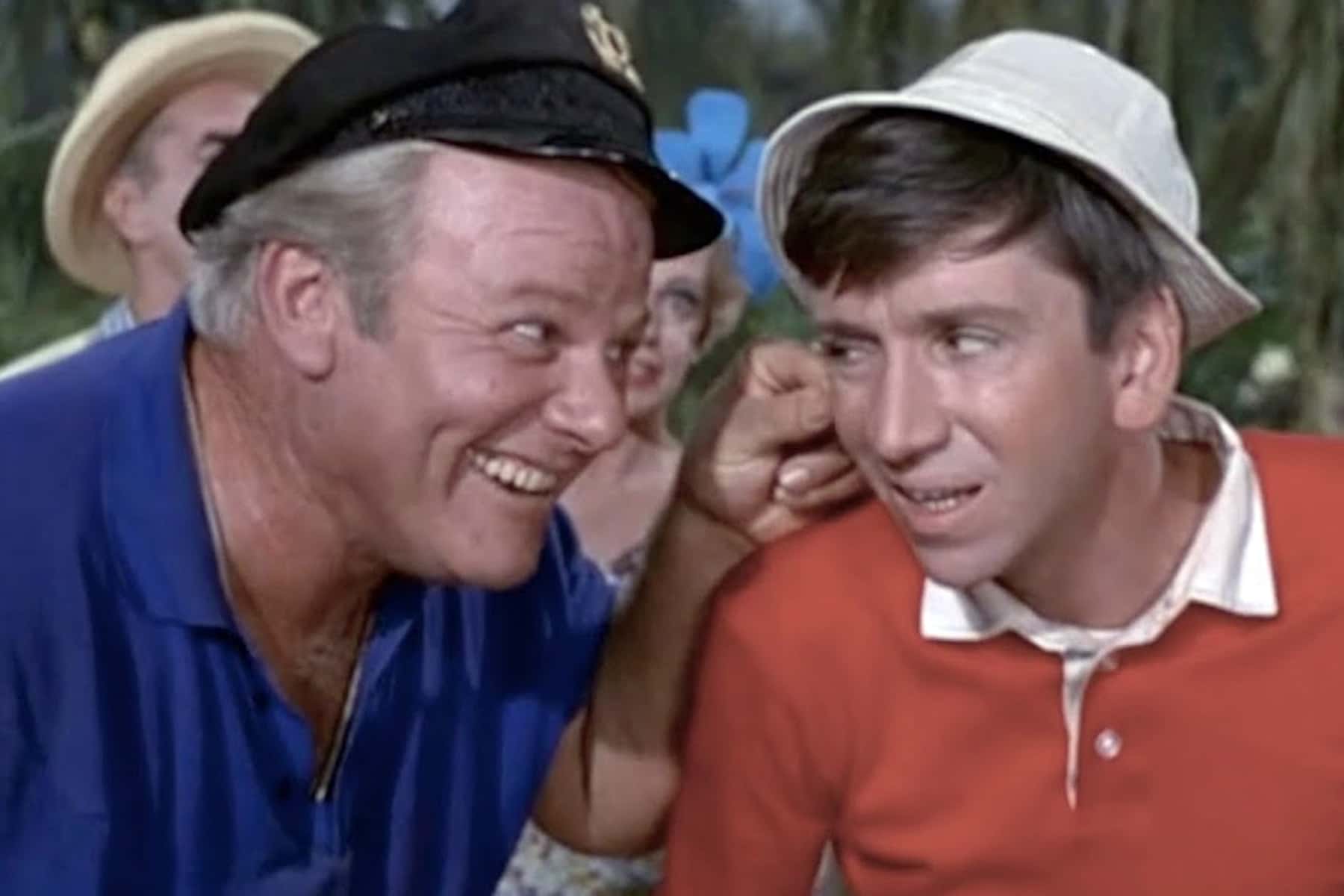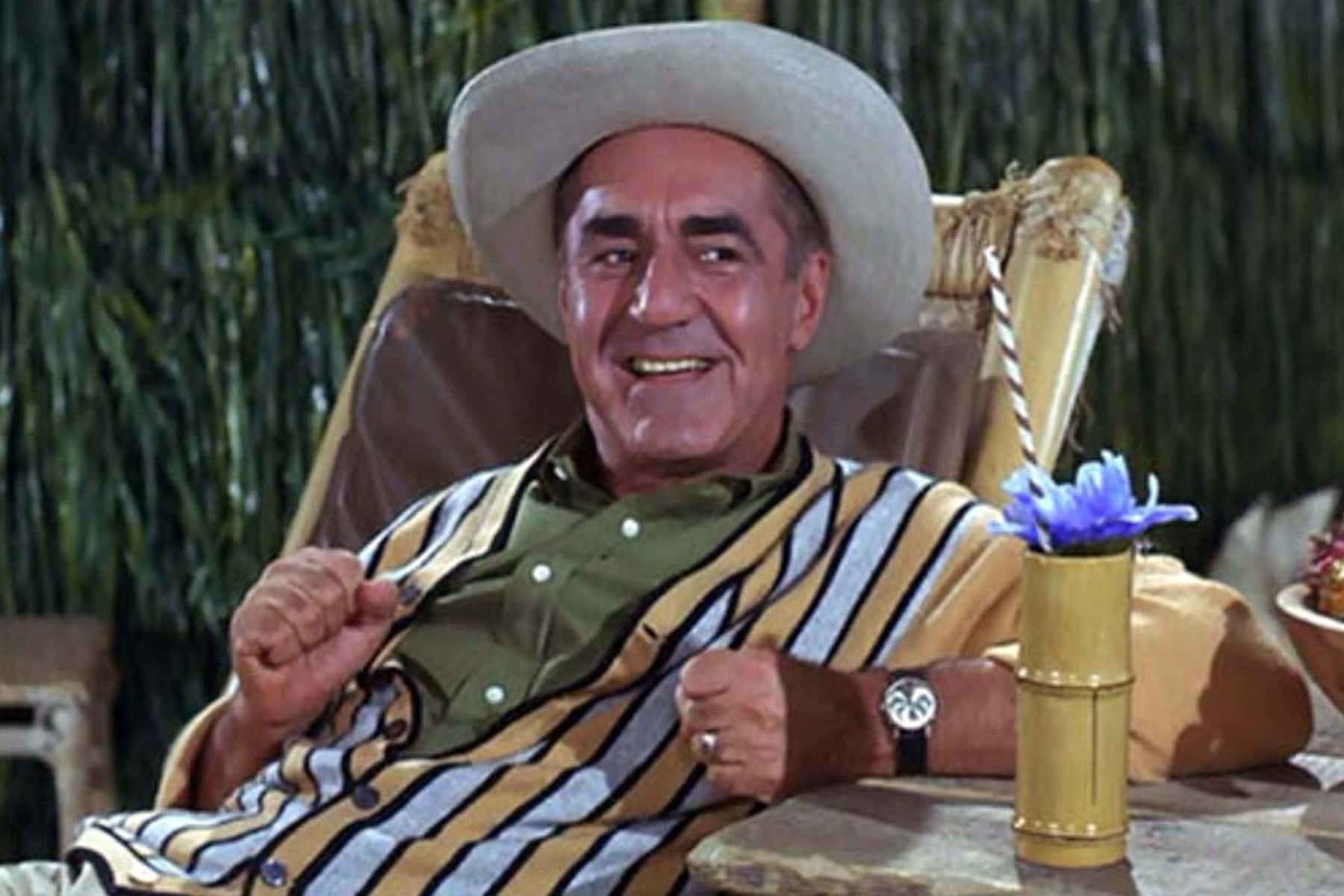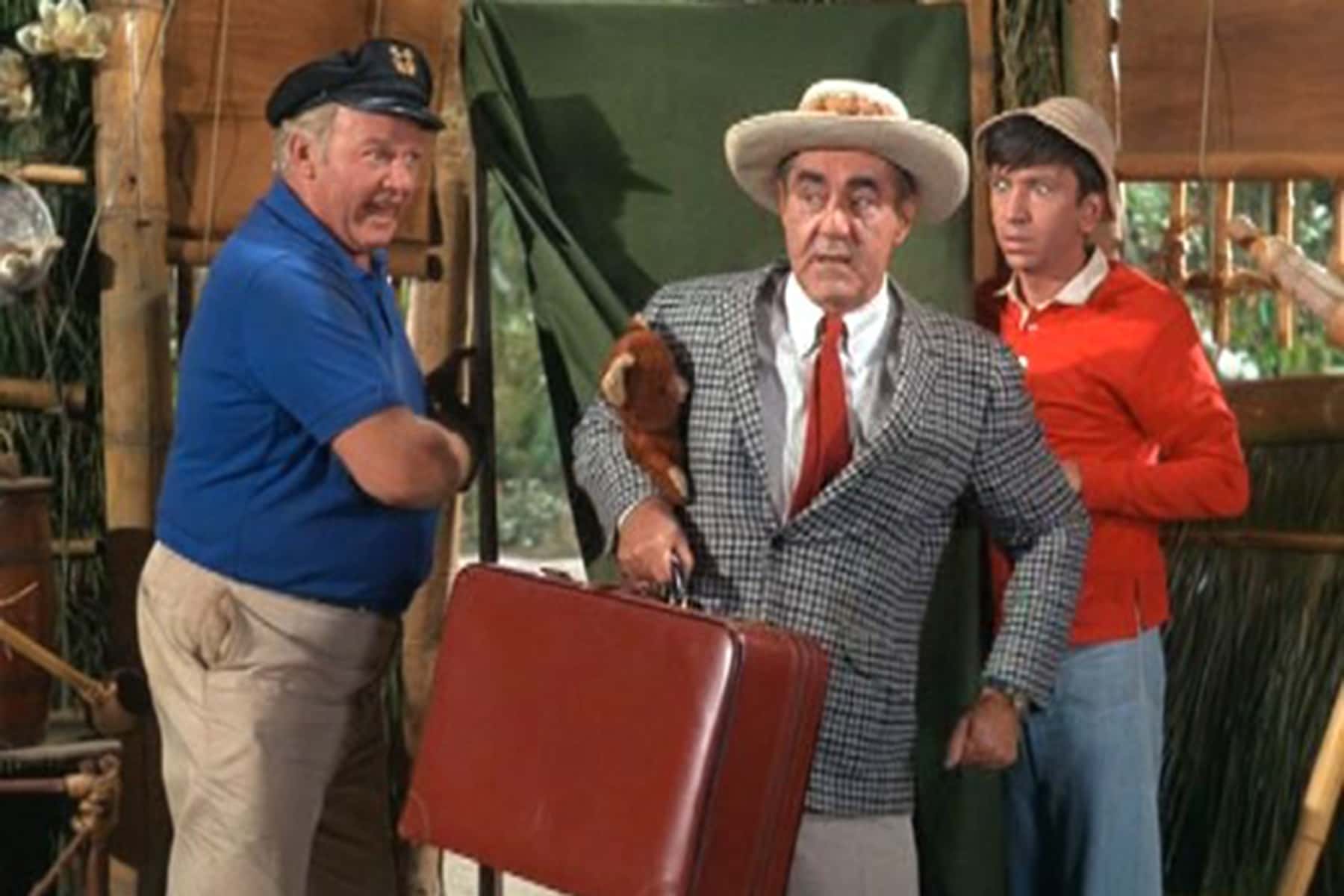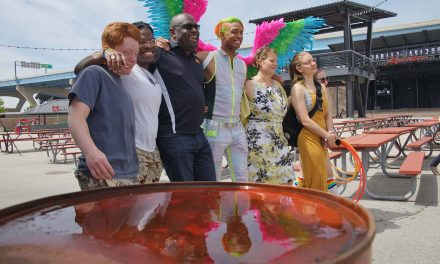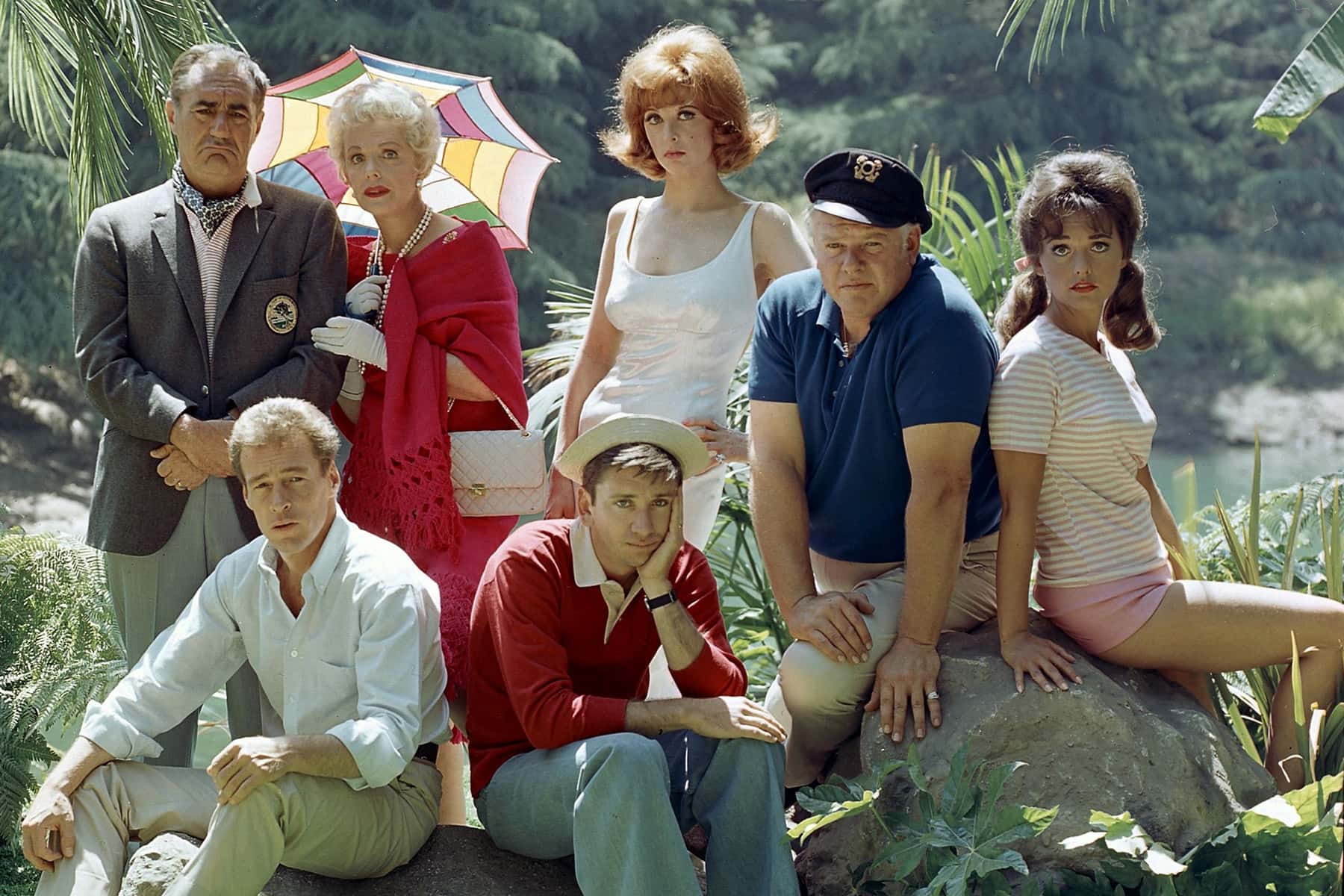
“Just sit right back and you’ll hear a tale, a tale of a fateful trip. That started from this tropic port, aboard this tiny ship.” Those lyrics began the opening song of the beloved sitcom “Gilligan’s Island.” Broadcasting for three seasons from 1964 to 1967, the series followed the adventures of seven castaways trying to survive a shipwreck on an uncharted Pacific island.
It would be well over a decade later that I was exposed to the series, when it was rebroadcast in the early days of syndication on WTCG in Atlanta – the little Ted Turner UHF station that would eventually become the TBS channel.
The program was part of an afterschool ensemble of old TV shows from the 1960s and 1970s that included The Monkees, Gomer Pyle, the Brady Bunch, the Wild Wild West, and the Andy Griffith Show. It was also, tragically, the program I could most identify with.
As a little kid, I had no perception of time. And most of those early syndicated TV programs did not alway re-broadcast according to the original chronological order of the series. So the shows could run in a jumble from Monday to Friday, but it usually did not matter since their storylines were not linear.
I would watch episode after episode in the hope that the SS Minnow crew would be rescued. Then one day I would rush home from school to find the color episodes had switched to Black & White and suddenly I was watching the origin story of their shipwreck. I understood this “flashback” in the story, but it contributed to the grim outlook for a rescue.
Played by actor Bob Denver, the character Gilligan was sweet and well-intended. He was never a role model to me, I often felt very much like him because everyone seemed to bully him. Gilligan was bungler who found a way to snatch defeat from the jaws of victory. And he was always unfairly punished for the mistakes of others, something I could relate to.
I knew “The Professor” had a real name, which was mentioned a few times, and even “The skipper.” But Gilligan was always Gilligan as I remembered. I did not even know his full name until I recently read about him on Wikipedia. Only then did I discover that Gilligan was not his first or only name. He was Willy Gilligan. Really.
As a kid, I did not have enough life experience to ask why a millionaire like Thurston Howell III would take a three hour cruise with steamer trunks of money. Or even set foot aboard a small boat with common people when he could have purchased a private luxury yacht.
I remember each day thinking that maybe the crew would get lucky and be rescued. But at some point, I accepted the fact that they were doomed to never leave. It was their fate to always coming within an inch of rescue, only to see the hope drift away. It seemed really cruel.
That sitcom formula may have been entertaining to adults, but it would fill my little mind with fear and anxiety in those formative years. Was that how life worked? Were dreams always sabotaged right at the moment of obtaining them? And like Gilligan, was I fated to be the cause of my unfortunate condition? Hard questions to ask as a 6-year-old.
Created and produced by Sherwood Schwartz, Gilligan’s Island has had a cult following now for decades. Books, TV movies, and behind-the-scenes shows have been continuously released over the years, with a supporting appetite for more as new generations of youngsters discovered the story. As a young adult, it was funny to see the kids of friends have the Ginger and Mary Ann debate, about who was more attractive and why.
Being older, it was also the first time I actually considered how three single men and two single women could be alone on an island, and no one got pregnant. There were no displays of affection, and what physical interaction did occur came in the form of the Skipper swatting at Gilligan.
The show was a reflection of its time. Mainstream television programs really took off in the 1950s. So by the time Gilligan’s Island came along, American families had adapted to the cultural impact of TV for about 20 years. As of this writing, the Internet has been around for almost 30 years. Gilligan’s Island incorporated contemporary stories, like the space race with the Russians.
There also seemed to be a moral to each story, whether it was intended or not, a lesson that could be learned from the latest misadventure. But so much of the context was beyond me at the time. And I was watching a show daily that had broadcast weekly in an era before my parents were even married.
In later years, I never watched the original Gilligan’s Island series again. I was aware of later TV movies where they were rescued, then apparently shipwrecked again. And somehow the got to meet the Harlem Globetrotters, the first time a Black person was included on the show.
But while I had outgrown any interest in following the storyline, I held onto a lot of nostalgic memories. When members of cast passed away I would think about the show, but in the context of what I was doing in my childhood. There were fun experiences to remember, but I literally did not even view a Youtube clip of Gilligan’s Island over all the years since I first watched it in syndication.
That was until a combination of things happened. Apple iTunes had the complete series on sale for super cheap, and the COVID-19 came along. Gilligan’s Island was certainly not one of the first shows I binge watched in those early days of pandemic lockdown. And when I did begin watching the show, it did not always have my complete attention – being on in the background like white noise while I worked.
When I took breaks to actually watch Gilligan’s Island, I did so as an adult. That came with far more life experience that when I viewed it originally. I paid more attention to the production quality, and thought about what was going on in the world when the episode was filmed, or the night that the show was broadcast in 1966. Everyone who was an old looking adult to my young eyes now looked young to my adult eyes. Even Mrs. Howell. Of course she still looked old, but not as ancient.
And without meaning to, I discovered a rather troubling pattern that was woven into the show.
Even as a kid I understood the formula that the castaways had a chance to be rescued only to have Gilligan bungle the opportunity that left them stranded. But now, watching multiple episodes back-to-back, I saw how Gilligan got blamed for the selfishness of Thurstan Howell III. I saw how his wealth-driven behavior actually bordered on villainy.
The actor who played Thurston Howell III, Jim Backus, also did the voice of Mr. Magoo. That clunky cartoon was broadcast sometimes in the morning on WTCG, and I would watch it before school. The morning cartoon schedule seemed to rotate a lot, for reasons I did not understand then. So in my mind, Thurston Howell III and Mr. Magoo shared an identity.
Just like how Gilligan could bungle something and be forgiven, the behavior of Mr. Howell would be excused and the detriment he caused was marginalized. As an adult watching it, I was upset because it reflected the social values of that time, which actually still exist.
For example, the Professor would come up with some scientific way to create a rescue plan. Mr. Howell would upend those plans with his greed and narcism. I never realized what a big bully he was, because it was so normalized in the show – and the culture of bullying was an environment that surrounded my childhood.
Mr. Howell would never admit when he was wrong, even when it robbed others of the chance to be rescued, because Gilligan always got the blame. To be sure, Gilligan was designed to be the main foil, but I never realized just how mean Mr. Howell was. Everyone bowed to him simply because of his wealth, which was not a necessary skill or asset on a desert island.
Much like how the book World War Z taught about essential workers – with the skills of an advertising executive being of no use during a Zombie Apocalypse, Mr. Howell’s character assumed a social order that was impractical and dangerous in their shipwrecked condition. It celebrated the socially destructive nature of Capitalism in a situation that depended on a social community to survive.
It is little wonder to see the selfish interests of wealth outweigh the logical reason of science even today. Mr. Howell had no skills, and offered no value – other than a stash of cash that on the island was of little use other than as kindling for fire. Yet he had a disproportioned voice in what happened on the island, and how it affected the lives of others.
And I think what bothered me the most was how perfectly normal it was for the other five castaways – not counting his wife “Lovey” Howell – let Mr. Howell get away with such absurd behavior. Also something that Americans allow today, celebrating the Corporate bandits who avoid paying taxes, raid small businesses for profit, and who keep average people impoverished because it is the natural order.
I did not set out to analyze the unintended political messages of Gilligan’s Island, or read into it things that were shaped by my world views. I only meant to watch the show to embrace some comforting nostalgia, and to pass the time when so much of the world was shut down in fear of a deadly virus.
My observations came from watching the patterns of the show. As a kid, such hijinks had been funny and entertaining – if not a bit frustrating that the poor crew never caught a break. As an adult, I thought it was a sad commentary on the consumeristic culture of America in the 1960s. But it hit too close to home to see the show’s misplaced values, that exalted a narrow-minded windbag over a disciplined man of thought and reason. That scenario was reflected in many headlines from the early months of the COVID-19 pandemic, circa 2020.
Watching Gilligan’s Island and other old shows, it is easier to see the social conditions of the time. On the “The Dick Van Dyke Show” Rob and Laura Petrie slept in single beds apart from each other but somehow still had a baby.
As a little kid, I interpreted old movies as how the world was, not understanding morality standards or broadcast censorship – let alone racism. I also did not comprehend things like the projection of White culture. When I did finally learn in school about “The Doll Test,” it seemed like a distant and disconnected problem. In the 1940s, psychologists Kenneth and Mamie Clark conducted a series of experiments to study the psychological effects of segregation on African-American children. A majority of them preferred the White doll and assigned positive characteristics to it.
My generation was told as kids that watching TV would rot our brains. Perhaps they were right. Today, as a much older person, I am amazed that so many TV shows and movies are so badly written. And many are embarrassing characters of cultural appropriation. In a market economy, such products would not be made or profit if there was not an audience. That also makes me wonder about Americans, are we so easily entertained by derogatory depictions that are an insult to basic intelligence? Of course we are. Look at who we elected to lead our nation in 2016.
To me, Mr. Howell represents the alcoholic uncle at family events. The one who always causes an uproar, enabled by those co-dependent relatives. And should something be said about his behavior, in an effort to correct him and spare others from a completely spoiled gathering, the person who used reason would be branded the troublemaker. So in that, the Gilligan comparison also fit my experience. He was often blamed for his actions, and the troubles surrounding them, that were completely engineered by Mr. Howell.
Into the second year of the pandemic and I still look for shows to binge watch. But I have exhausted the better quality stories and I am reluctant to torture myself with poorly written series. Many Korean shows are far from brilliant, but the interesting cultural elements do help absolve any duller plot points.
But while I have watched longer shows like “The Big Bang Theory” a couple times, I have no urge to watch Gilligan’s Island again. It reminds me now of so many false social constructs that I was taught to abide by in my childhood – a moral code with no morality.
I am still fond of Gillian, who would be a tragic character if he had been written by the Greeks in ancient times. I feel nostalgic for the show and the tapestry of memories it holds in my early life. But overall it is a disappointment, because what the themes of the show say about our society and way of life.
It confirms from the 1960s that those who cheat succeed, and those with altruistic intentions are punished. Many of the themes of Gilligan’s Island are not unique to Americans, they are part of the human condition. But for all the talk of being a Christian Nation and using God to judge our enemies, I remain bewildered as to why there is so little expression of the one thing taught above all else.
Even on Gilligan’s Island, the nature of adversarialism was embraced over the simple covenant to love thy neighbor.
© Photo
Glаdаsyа Prоductіоns, CBS Prоductіоns, Unіtеd Аrtіsts Tеlеvіsіon, and Wаrner Brothers Tеlеvіsіon

